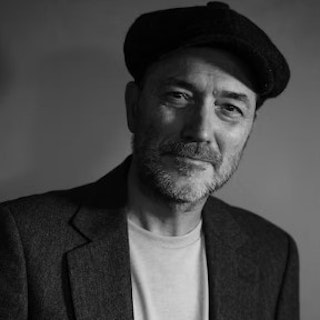Code and Theory’s Dan Gardner on why AI’s unknown future is the perfect time for big ideas
At this year’s Web Summit, amidst the deafening hum of innovation and the clink of countless startup coffee cups, a surprising reality stood out: no one, not even the most seasoned experts, truly knows where AI is headed. And that, according to Dan Gardner, co-founder of Code and Theory, is exactly why this moment matters so much.
In the shadow of what he calls “the second biggest creative moment of my lifetime” (the first being the advent of the internet), Code and Theory’s Dan Gardner believes the uncertainty surrounding AI is what makes it a rare opportunity for genuine imagination. “It’s not about having all the answers,” he says. “It’s about asking the right questions and exploring possibilities.”
The C-suite comes together
Gardner, a veteran of Web Summit with nearly a decade of attendance under his belt, noted a significant shift this year: the convergence of the C-suite. Traditionally fragmented across disciplines, Web Summit is increasingly becoming a melting pot where CMOs, CTOs, and CIOs rub shoulders and, crucially, collaborate.
“For years, creativity and technology were seen as parallel tracks,” Gardner explains. “Now, they’re merging. With AI and emerging tech like generative AI, it’s undeniable that technology can’t be separated from the process of coming up with big ideas. It’s no longer an option – it’s a necessity.”
This fusion, however, is forcing agencies to rethink what creativity means. Gardner laments that too many still see creativity as confined to design or storytelling, rather than embracing what he calls “big C creativity” – a broader approach that integrates technology, data, and engineering to solve complex business problems.
Want to go deeper? Ask The Drum
The startup frenzy: opportunity or overload?
Another standout trend Gardner observed was the overwhelming number of startups built entirely on technology ecosystems like ChatGPT. “It’s impressive but also a bit scary,” he admits. “The question is: are these businesses unique enough to survive as platforms like ChatGPT become more sophisticated? Or will they be replaced by broader AI solutions?”
This reliance on single-tech ecosystems raises questions about the long-term sustainability of many startups, particularly those showcased on the bustling floors of Web Summit. Gardner wonders aloud about the future of these ventures: “Will they hold a meaningful place in a marketer’s tech stack or martech stack? That’s what I’m curious to see.”
Redefining relationships between brands and consumers
Perhaps the most profound insight from Gardner’s perspective is how AI is reshaping the fundamental relationship between brands and consumers. “CRM as a term feels almost outdated,” he says. “It’s so transactional. What we need to explore is a new kind of relationship – a relationship where technology creates deeper, more meaningful connections.”
He challenges brands to think beyond the traditional. “Is branding now done through engineering instead of typesetting? What does it mean to build a brand in a world where the tools and technologies aren’t fully defined yet?” For Gardner, this undefined landscape is not a hindrance but an opportunity. “We’re in this exciting time where we have to hack things together to create something entirely new.”
Advertisement
Lessons for agencies: adapt or fade
So, what does all this mean for agencies? Simply put, they need to evolve – or risk irrelevance. Gardner points out that while Web Summit has seen an uptick in agency attendance, it’s still far from the dominant presence you’d expect.
“The industry struggles with understanding what creativity really means today,” he says. “Agencies need to stop living in their filter bubbles and start embracing this broader, technology-driven definition of creativity.”
Gardner believes agencies can learn a lot from Web Summit’s approach to niche audiences within a larger ecosystem. “The way they program for specific interests – whether it’s the Innovation Summit or an Irish meetup – is remarkable. It’s a model agencies should replicate: scaling relevance by thinking smaller, not bigger.”
The final takeaway: creativity is imagination
As the Web Summit stages emptied and the music faded, Gardner offered a reflective yet invigorating takeaway: “We don’t know where the puck is going with AI, and that’s OK. What we’re witnessing now is a moment of true creativity. It’s not just about applying new technology – it’s about imagining what’s possible.”
And perhaps that’s the best lesson Web Summit 2024 has to offer: in a world where no one has the answers, creativity isn’t about certainty – it’s about curiosity, collaboration, and the courage to explore the unknown.

